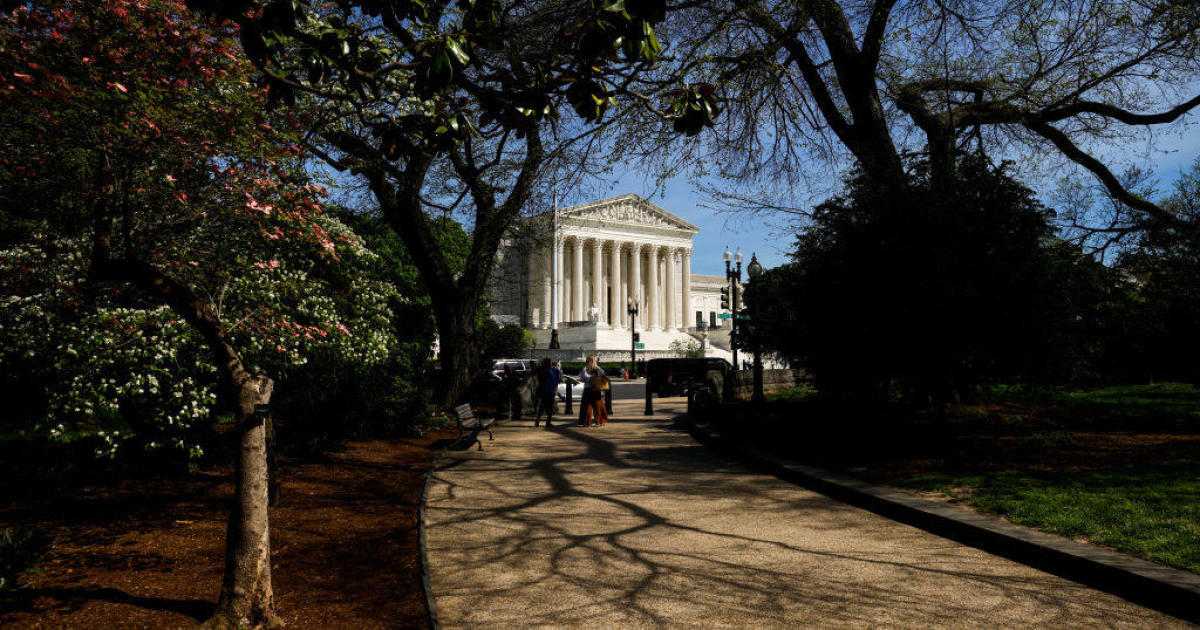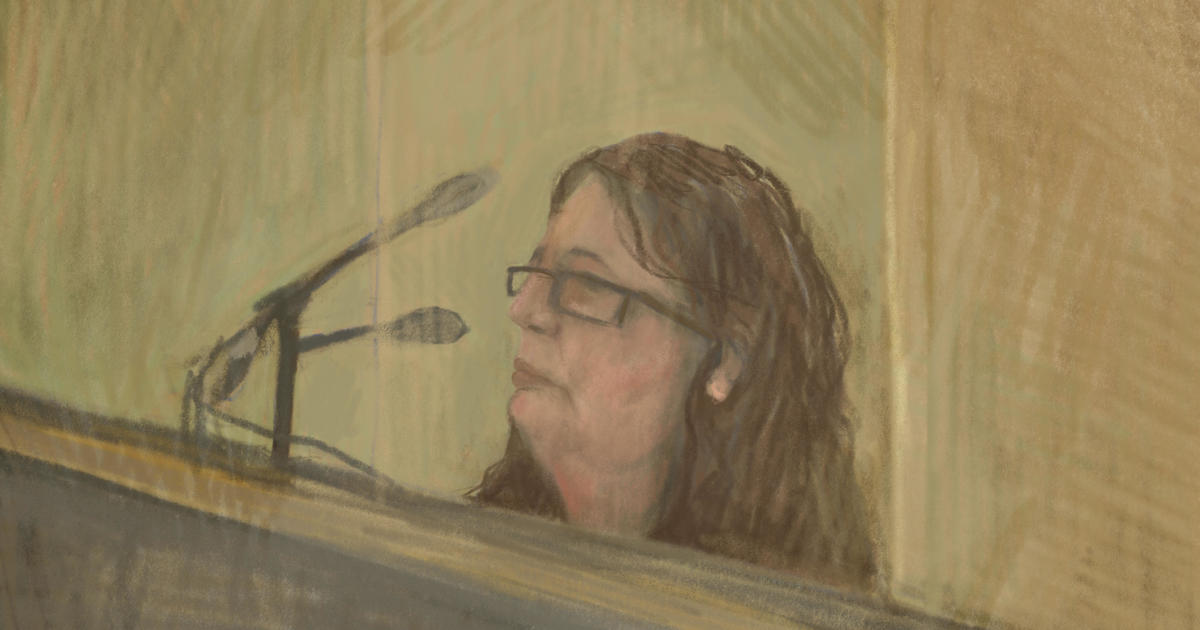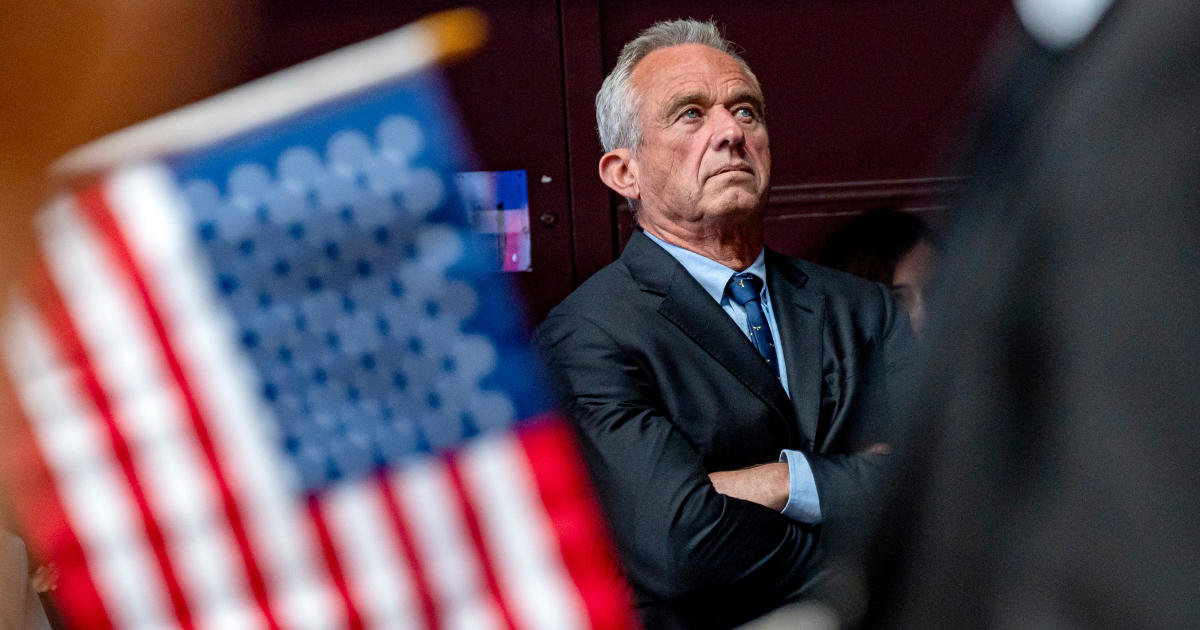Abortion battle sparks influx of interest — and money — in state Supreme Court races
Washington — The stakes surrounding state Supreme Court races around the country are the highest they have been in recent memory this election cycle, as activists on both sides of the abortion rights debate shift their focus to state judiciaries that could now be the final word on the issue in the wake of the U.S. Supreme Court's reversal of Roe v. Wade.
There are state Supreme Court elections in 30 states this year and 85 seats in all on the ballot, according to Ballotpedia, although most of the contests are for seats held by nonpartisan justices. But in at least three states — North Carolina, Ohio and Illinois — party control of the high court hangs in the balance in November.
While state judicial races have typically garnered attention from in-state business interests in years past, the U.S. Supreme Court's recent decisions on redistricting and ending the constitutional right to an abortion have elevated the contests, with big money expected to flow into the races this cycle.
"Just generally in this moment, the U.S. Supreme Court is making clear that it's stepping back from the role of protecting individual rights and from ensuring that other mechanisms of our democracy are functioning," said Douglas Keith, counsel in the Democracy Program at the Brennan Center for Justice. "With that being made clear by the U.S. Supreme Court, it's becoming apparent to a lot of folks that state Supreme Courts are going to be as important as they've ever been because they're going to be the ones deciding these key questions."
The U.S. Supreme Court's 2019 ruling that federal courts have no role in deciding claims of partisan gerrymandering left state courts as the sole venues for legal challenges to voting bounds drawn to entrench the party in power and shifted focus to the state judicial races. A report from the Brennan Center found that the 2019-2020 election cycle was record-setting for spending in state justice contests, with nearly $100 million spent across the country.
But the Supreme Court's decision in June overturning Roe v. Wade has further fueled the interest on state judicial races, as abortion rights supporters are already pursuing lawsuits in state courts challenging newly implemented restrictions under state constitutions.
Because of the fervor surrounding abortion rights, Keith predicted these contests will usher in the most expensive midterm cycle yet for state judicial elections.
"Previously if there was a law restricting abortion access or a partisan gerrymander put in place by the legislature, people who wanted to challenge those acts had two bites at the apple: They could go to state court and make state law claims or go to federal court and sue under the U.S. Constitution," Keith said. "Since the U.S. Supreme Court is closing the federal court doors to so many of these questions, state courts become more powerful, since they have the only word on some of those issues."
But state courts, he continued, are "not asserting themselves. It's the federal courts that are shutting their doors to these questions."
In Montana, the state constitutional right to an abortion was recognized by its high court in a 1999 decision, in which the court found that the abortion restrictions in question infringed on a woman's right to individual privacy under Montana's Constitution. But Republicans there are hoping that a change in the makeup of the state Supreme Court will lead to an overturning of the 23-year-old ruling. Two candidates backed by the state GOP, Justice Jim Rice and lawyer James Brown, are on the ballot in November.
In Ohio, voters will cast ballots for three seats on the state Supreme Court in November, all of which are currently held by Republicans. The GOP justices on the Ohio Supreme Court currently control four seats to Democrats' three, and this year's contest marks the first in which party affiliation will be included alongside candidate names on the ballot in November.
Kellie Copeland, executive director of Pro-Choice Ohio, said the state's high court elections, as well as its gubernatorial race, are a "top priority" for the organization, especially because one of the seats to be filled belongs to Chief Justice Maureen O'Connor, who is considered a swing vote and is retiring due to an age limit.
"The control of the court is up for grabs, so both pro-choice organizations and anti-choice organizations are laser focused on the state Supreme Court, because there are challenges that will work their way through the state courts and end up at the Supreme Court," she told CBS News. "We believe that is the first and fastest way to restore abortion access in Ohio."
At least one legal challenge to an Ohio law banning abortion after embryonic cardiac activity is detected, around six weeks of pregnancy, argues the measure violates the Ohio Constitution, which abortion providers who brought the suit say protects the fundamental right to an abortion.
"Winning this court with candidates who are going to follow the state Constitution, recognize the human rights that are guaranteed in there, it's essential," she said.
Copeland also noted the state high court could play an important role if abortion rights proponents pursue a ballot measure to change the Ohio Constitution to protect abortion rights, an effort that often leads to litigation over an initiative's language.
If the state Supreme Court's majority opposes abortion rights, "that will make it very difficult for us not only to restore abortion access, but guarantee it in the future," she said.
Meanwhile, in Michigan, justices affiliated with the Democratic Party hold a slim 4-3 majority on the state's highest court, and Democrats are hoping to maintain their control. The future of abortion access in the state has already landed on that court's doorstep, as Gov. Gretchen Whitmer directly asked the Michigan Supreme Court to invalidate a 91-year-old law banning abortion that predated the Supreme Court's decision in Roe v. Wade and recognize the right to an abortion under the Michigan Constitution.
Enforcement of the pre-Roe law has been put on hold by a lower court in a separate challenge from Michigan abortion providers, though it's weaving its way through the state judiciary.
"If voters care about abortion access, the Ohio and Michigan Supreme Court races in November are some of the most important races for them to be thinking about," said Jake Faleschini, legal director for state courts at the Alliance for Justice Action Fund, a liberal group focused on the courts.
In Illinois, meanwhile, there are two competitive judicial races this year after the state redrew its district boundaries for the seven-member Supreme Court. While Democrats have held a four-seat majority for nearly two decades, the state Supreme Court could flip with the new map in place this year, Faleschini said.
The Illinois Supreme Court has recognized the right to an abortion under the state constitution, but a change in its makeup could lead to a court fight that abortion rights advocates fear could jeopardize access. Such a step, Faleschini said, would not only have ramifications for Illinois patients, but also those in neighboring states who turn to Illinois for abortion services due to limits where they live.
"Illinois has an outsized role in the Midwest of continuing to keep abortion access somewhat accessible for the Midwest," he said.
North Carolina's judicial contests, meanwhile, are among the most closely watched this year, with Republicans having a chance to flip the current 4-3 court. GOP state lawmakers have run into trouble from the state high court over redistricting, with a challenge involving court-drawn congressional lines prompting a blockbuster election law dispute that's set to be heard by the U.S. Supreme Court in its upcoming term.
A Republican-controlled state Supreme Court could also be a foil to Gov. Roy Cooper, a Democrat, who signed an executive order in July to protect access to abortion services.
With supporters of abortion rights arguing access is on the ballot in November, activists are making new investments to elect pro-abortion rights candidates up and down the ticket. Planned Parenthood on Wednesday announced it plans to spend an historic $50 million investing in nine states where access is on the ballot: Georgia, Nevada, Minnesota, Pennsylvania, Arizona, North Carolina, New Hampshire, Michigan and Wisconsin.
Sarah Standiford, spokesperson for Planned Parenthood Votes, said in a statement to CBS News that the efforts from the reproductive health care provider's advocacy and political organizations extend to Congress, state legislatures, the courts and the ballot box.
"State supreme courts are a critical backstop — in some places an opportunity to defend our constitutional rights," she said. "Wherever possible, Planned Parenthood advocacy and political organizations will be engaging with voters on the state and local races essential to defending our rights — prioritizing supreme court races in many places, including Ohio, Michigan, and North Carolina."
The Democratic Legislative Campaign Committee also said it is investing in state Supreme Court races for the first time this election cycle.
"State legislatures remain our priority, but state Supreme Courts wield tremendous power over state laws, redistricting maps, and election implementation," Gabrielle Chew, the group's spokesperson, said in an email to CBS News. "Like state legislatures, Democrats have historically overlooked state Supreme Courts to their detriment. Here at the DLCC, we're looking to change that."



